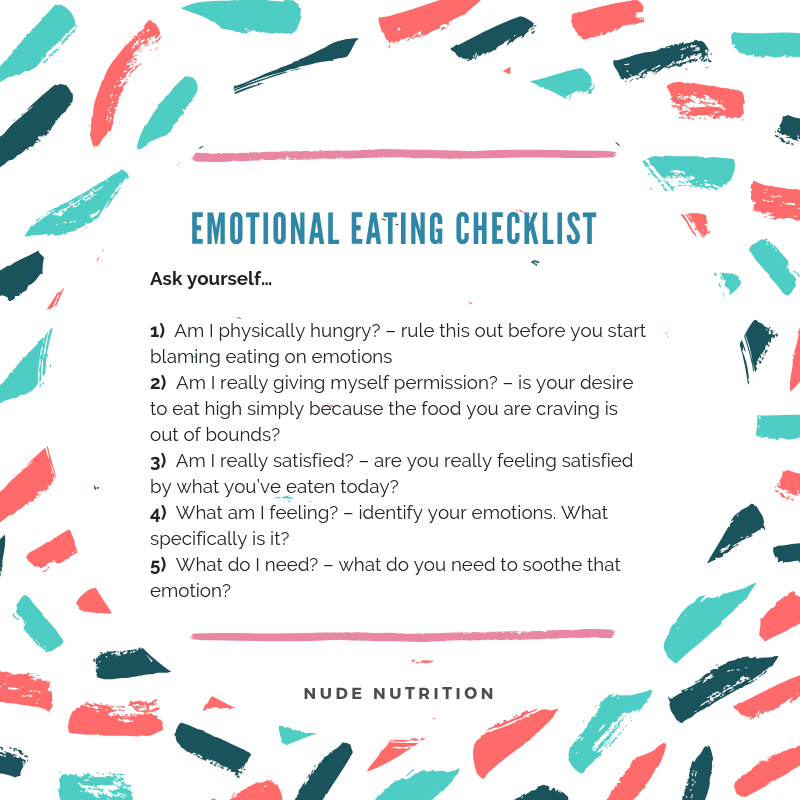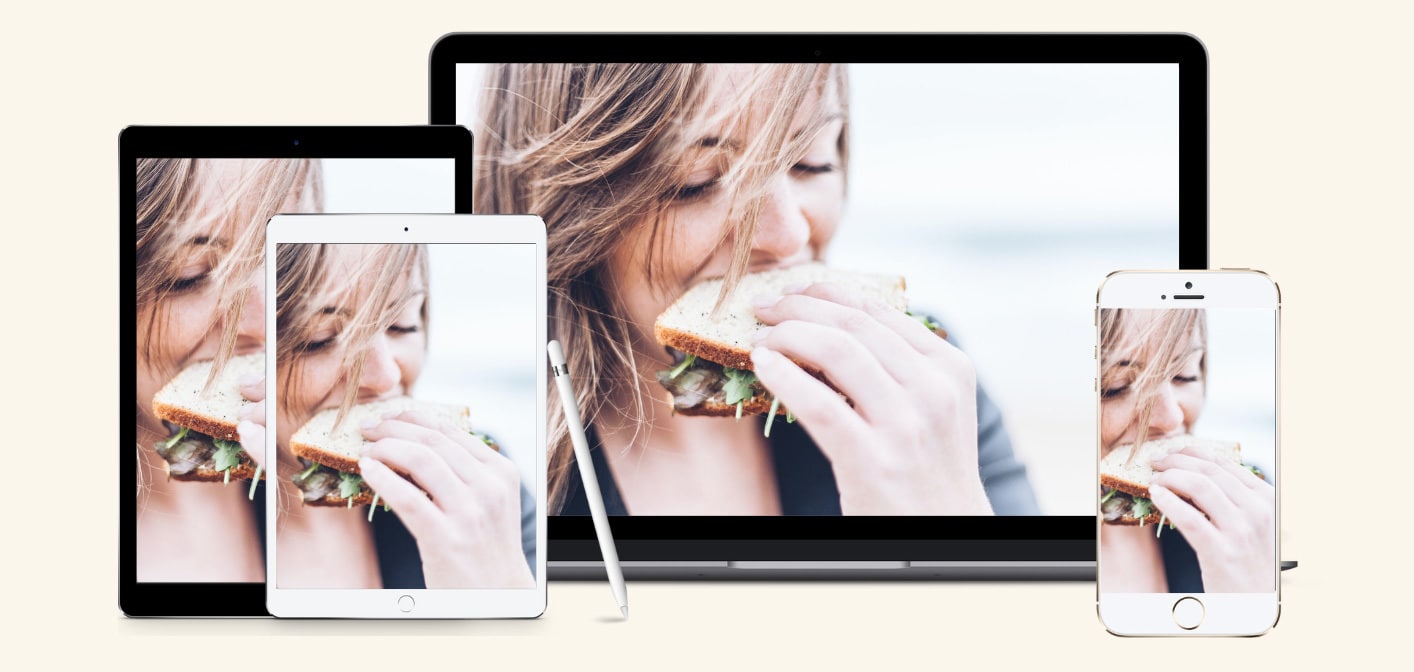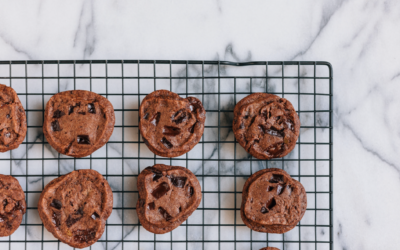How to stop emotional eating
Are you sick of out of control eating and wonder how you can just “stop emotional eating forever?”
It often starts by digging through the fridge or cupboard, moves onto picking at a few crackers, and then the cheese, and before you know it you are elbow deep in ice-cream.
You go to bed feeling uncomfortable, sick and accompanied by guilt, shame. Worst of all, the initial uncomfortable emotion that triggered it all (perhaps stress, anger, loneliness) hasn’t really gone away.
This is a classic case of emotional eating and in this article I am going to share with you how to stop emotional eating forever!
Actually, not quite. Let’s get something straight. Emotional eating is not inherently bad or wrong. If you think about it, it’s probably been one of the best coping mechanisms you have had available to you so far. So it’s has served a purpose and actually helped you take care of yourself when you’ve needed that comfort. It’s also a pretty benign coping mechanism. After all, there are worse things going on in the world than eating a heap of food in one sitting – the world is unlikely to cave in.
However, I appreciate you are here for tools to help. I am a Registered Dietitian working with those who experience emotional eating, anxiety eating and feeling guilty after eating. I have outlined below a number of potential causes. I offer some suggestions on how to stop emotional eating and how to start intuitive eating.
Video Caption
Emotional eating causes and how to stop
So what are the possible causes?
1) Firstly, you have to rule out actual physical hunger
I know this may sound obvious, but in my practice, I frequently see clients who consider themselves emotional eaters. However, when we dive into their eating patterns, it quickly becomes apparent that their episodes of emotional eating are driven by hunger (at least partly).
In addition, some are denying, ignoring, or not actually able to feel their hunger. This results in blood sugar levels dropping, which can manifest in anxiety, stress or feeling irritable. So when hunger manifests, it’s coupled with the anxiety, stress, irritability. It’s pretty understandable to be scoffing down the first thing in site. In can sometimes feel like a binge.
“So what feels like an episode of ‘emotional eating’ is in fact just as a result of leaving too long between eating, or simply not eating enough throughout the day, and then hunger catching up.”
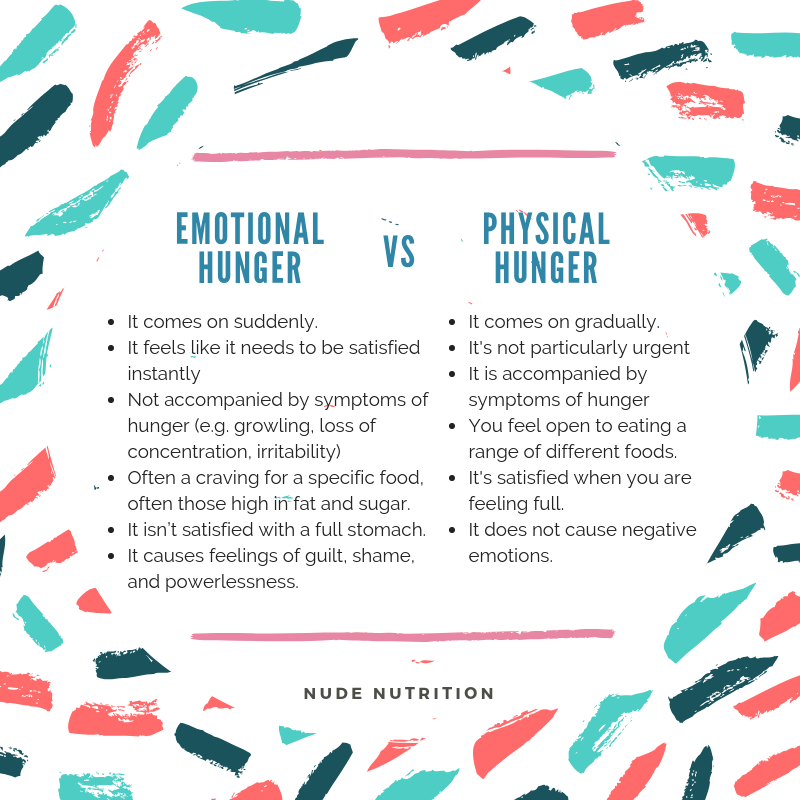
2) Check in with yourself – are you really satisfied?
Whether it’s food, relationships or our career, if we are not satisfied, we are not happy. To find satisfaction in the food we eat, the meal needs to be something we enjoy and actually want to eat.
It’s no good denying the pudding just to be ‘good’ if you find yourself scoffing a whole pack of biscuits the minute you return home. Equally, it’s no good eating the green salad when you really wanted a warming bowl of pasta. It’s likely that you will finish the meal unsatisfied and looking for other foods to satisfy your taste buds. So eating when you are not hungry is often mistaken for emotional eating, when it’s not entirely. It’s just a natural response to feeling unsatisfied by the foods you are eating.
Equally, if you imagine an experience you’ve had where you have eaten to push down your emotions. Again, it’s not a very satisfying experience, leaving you wanting to eat more. You are filling up your emotional hunger (as opposed to physical hunger), you will ultimately not feel very satisfied.
3) Okay, you have realised it’s not hunger or the fact you are not satisfied… and you are still struggling?
As I mentioned before, emotional eating is not inherently bad or abnormal. We all have an emotional connection to food. Food is love, comfort, reward and a reliable friend. Sometimes it becomes our only friend, and when we consider how emotionally charged food is, this is completely understandable.
So when is it really a problem?
Emotional eating is only really a problem if you rely entirely on food to soothe your emotions and you have no other coping mechanisms.
So what can you do about it?
1) Start reframing your thinking.
Rather than thinking negatively, try to look at your eating habits without judgement. Look at your habits with curiosity. Ask yourself “how has emotional eating been helpful for me? What need has this met for me?”. Reflect on this, and only then can you start to build up your emotional coping toolkit.
2) How to identify your emotions
Start by really understanding your emotional triggers. Cravings for a specific food, or simply a desire to eat can be triggered by a variety of feelings and situations. Using the emotional feelings wheel below is a useful tool to identify these feelings. Writing your feelings out, talking to a friend, counsellor, or just sitting with the feeling and experiencing it (as uncomfortable as that may be), can also be helpful to identify the feelings you are experiencing.
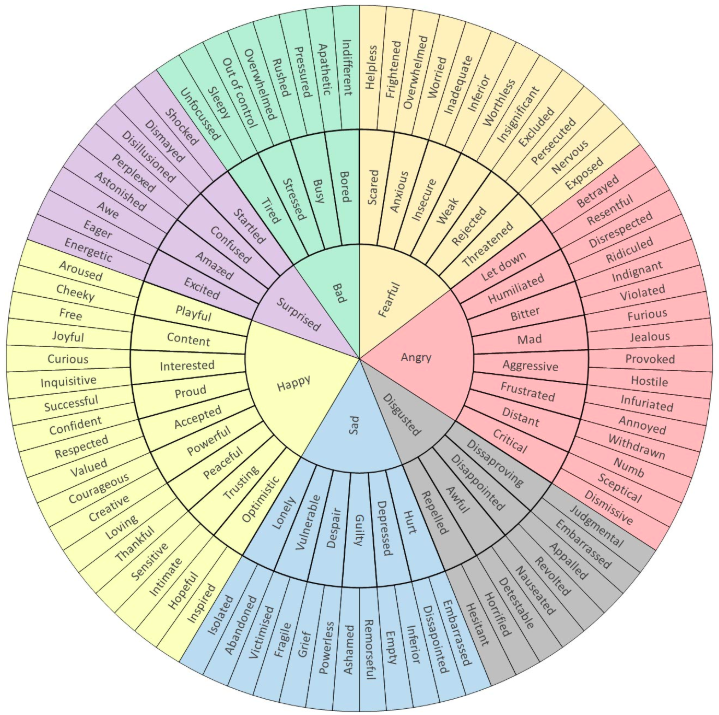
3) The power of 3
Having a list of 3 simple and accessible alternatives can be a handy way to deal with your feelings when they arise. This will reduce your need to push them down with food. It could include; calling a friend, writing down your feelings in a journal, letting yourself cry, breathing deeply, jumping around and shaking them off. Keep the list somewhere you can easily access it (e.g. your phone home screen).
We also sometimes eat through boredom, loneliness, fear or anxiety and simply distracting yourself can be a way to reduce overwhelm of trying to deal or feel the feelings in that instance. Reading a book, going for a drive, cleaning out a cupboard, doing a puzzle, taking a nap, playing on your phone or computer can also be great ways to distract yourself.
4) Take care of yourself
Whilst some people learn from a young age that it’s okay to ask for a hug, or are taught how to look after themselves in productive and nurturing ways, some of us still need to discover unmet our needs. Some basic unmet needs can include; getting rest, expressing feelings, being intellectually and creatively stimulated, being heard, understood and accepted, receiving warmth and comfort, and being sensually stimulated.
Ginger Kara has created this self-care diagram which is an excellent demonstration of ways in which you could nurture yourself so that food loses its number one position in this role.
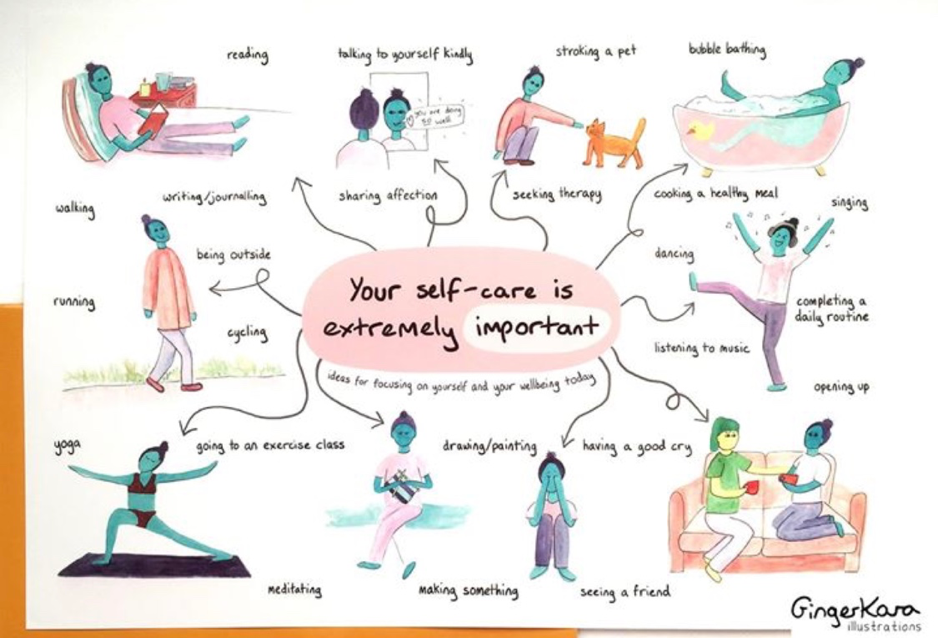
Remember, emotional eating is not inherently bad. It’s simply your body’s way of telling you that it needs something. We shouldn’t be driving to eradicate it as we will be fighting a losing battle. Rather, we should be pausing and asking questions like
“am I hungry?”
“What am I feeling?”
“What do I need?”
These needs can sometimes be met without food, you just have to find it. It’s okay for food to still be one of these coping mechanisms, just try not to let it be the only mechanism.
Your relationship with food will become more positive as you begin to let go of it as a single coping mechanism, and bring it back into your life as a pleasurable and calm experience.
For more on how to emotional eating, how to stop food obsession, how to stop binge-eating, stress eating, yo-yo dieting, and how to start intuitive eating check out my short course. This will guide you through some of the first steps to support you through your food problems. You will learn how to stop food obsession, and how to start intuitive eating.
If you’re struggling with your mental health, and this is affecting your day to day life, another way you can get support is through talk therapy. Visit BetterHelp to learn more about how talk therapy can help you develop healthy habits.


